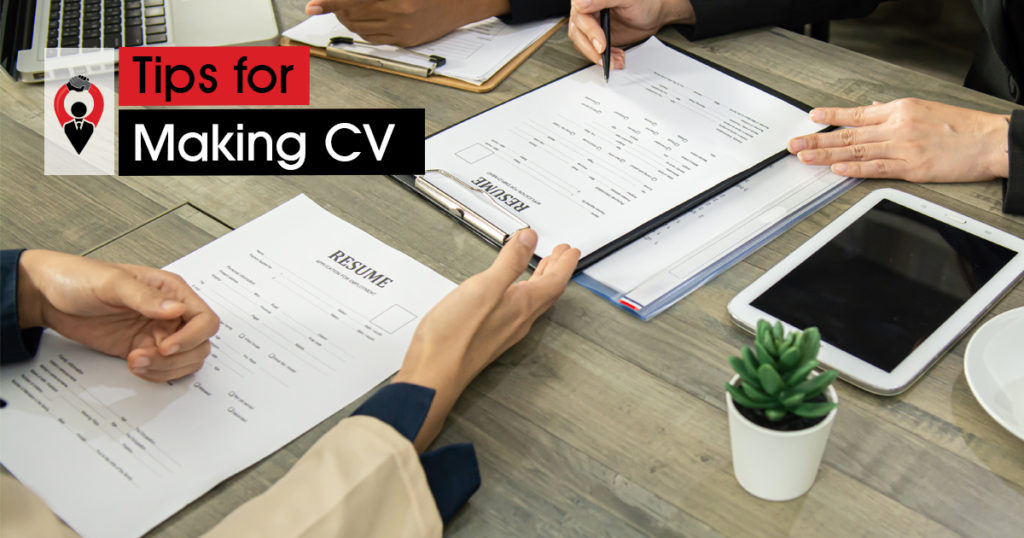In today’s competitive job market, having a well-crafted curriculum vitae (CV) is essential to make a positive impression on potential employers. Your CV is your first opportunity to showcase your qualifications, skills, and experiences. This article will guide you through the process of creating an effective CV that sets you apart from the competition.
What is a Curriculum Vitae (CV)?
Before we delve into creating an impressive CV, let’s define what a CV is. A Curriculum Vitae, commonly referred to as a CV, is a comprehensive document that summarizes your educational and professional history. It’s more extensive than a resume and provides a detailed account of your achievements and qualifications.

The Importance of a Well-Designed CV
Your CV serves as your marketing tool; it is often the first document employers review when considering candidates. Therefore, it’s crucial to make it stand out. Here are some key tips for crafting an effective CV:
1. Start with a Strong Heading
Your CV should begin with a clear and concise heading. Include your name, contact information, and a professional email address.
2. Personal Statement
Compose a compelling personal statement or objective that highlights your career goals and aspirations. Keep it brief but impactful.
3. Highlight Your Professional Experience
List your work experiences in reverse chronological order. Include your job title, the name of the company, dates of employment, and your key responsibilities and achievements.
4. Showcase Your Educational Background
Detail your educational qualifications, including degrees, institutions attended, graduation dates, and any relevant honors or awards.
5. Skills and Achievements
Create a section for your skills and achievements. Include both technical and soft skills that are relevant to the job you’re applying for.
6. Tailor Your CV for Each Job Application
Customize your CV for each job application. Highlight the skills and experiences that are most relevant to the specific position.
7. Be Honest and Accurate
Maintain honesty and accuracy in your CV. Exaggerations and falsehoods can damage your credibility.
8. Use Action Verbs
When describing your experiences, use action verbs to convey your responsibilities and achievements more dynamically.
9. Be Mindful of Formatting
Ensure your CV is well-organized, with consistent fonts and formatting. Use bullet points to make it more readable.
10. Proofread and Edit
Thoroughly proofread your CV to eliminate any grammatical or spelling errors. A well-written document reflects professionalism.
11. Include a Professional Photo
Adding a professional headshot can enhance your CV’s visual appeal but is optional in some regions and industries.
12. Keep it Concise
Your CV should ideally be between one to two pages. Keep it concise and relevant to avoid overwhelming potential employers.
13. Seek Feedback
Get feedback from mentors, colleagues, or professional CV writing services to improve your CV’s quality.
14. Include References
State that references are available upon request. There’s no need to provide them in the initial CV.
15. Update Regularly
Your CV should be a dynamic document. Update it as you gain new experiences and skills.
Conclusion
In conclusion, a well-crafted curriculum vitae is a powerful tool in your job search. It provides prospective employers with a snapshot of your qualifications, experiences, and skills. By following the tips outlined in this article, you can create an effective CV that sets you on the path to career success.
Frequently Asked Questions (FAQs)
1. Should I include personal information, such as age and marital status, in my CV?
No, it’s generally best to avoid including personal information that isn’t relevant to the job. Focus on your professional qualifications and achievements.
2. How important is the order of sections in a CV?
The order of sections in a CV can vary, but it’s recommended to start with your contact information, followed by a personal statement, work experience, education, and skills. Tailor the order to emphasize your strengths.
3. Can I use a CV template, or should I create my CV from scratch?
You can use CV templates as a starting point, but it’s important to personalize your CV to reflect your unique qualifications and experiences.
4. Is it necessary to have a professional review my CV?
While not mandatory, having a professional review your CV can provide valuable feedback and help you create a more impactful document.
5. How often should I update my CV?
It’s a good practice to update your CV whenever you acquire new skills, complete a major project, or change jobs. Regular updates ensure your CV is always current and ready for new opportunities.
You may like,



